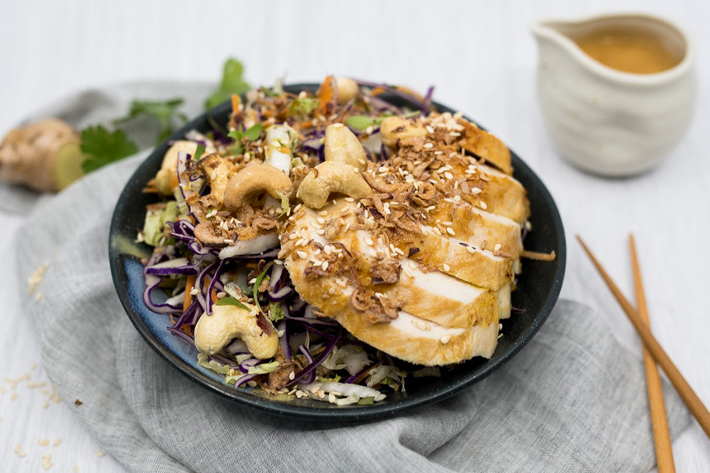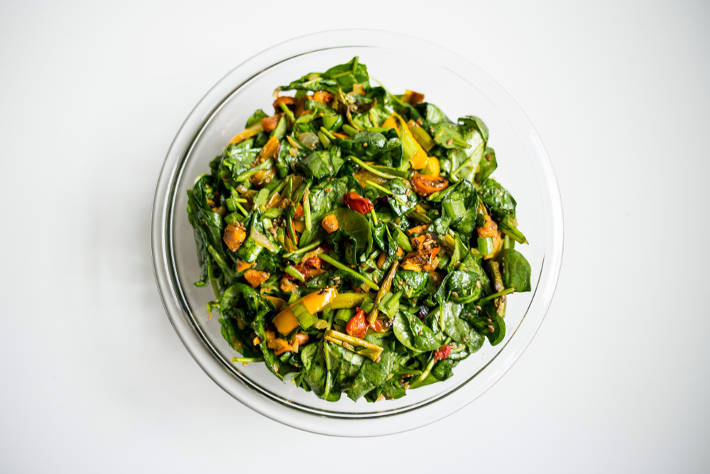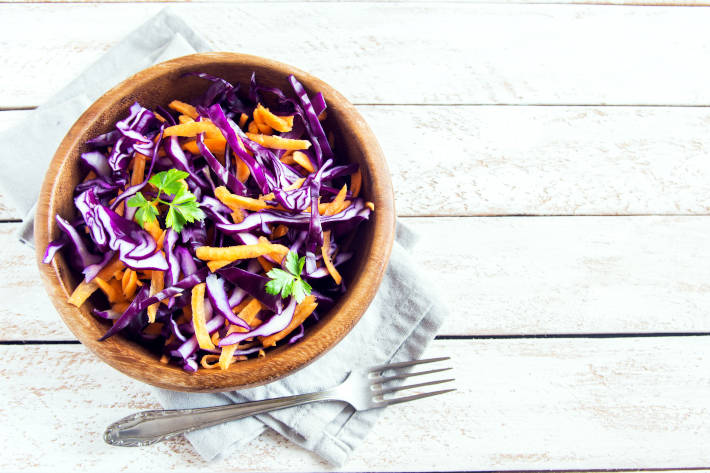The Immune System: Antiviral Nutrients
The immune system is a network of tissues, white blood cells, and proteins that work to protect the body against pathogens including viruses, bacteria, and other disease-causing microorganisms. Quality nutrition is key in proactively strengthening the immune system to avoid getting sick. There are a variety of foods and supplements we can incorporate into our daily eating routine to optimize our immune system
Nutrition Scientist Kim Bowman, MS from F45 reveals some key foods and supplements to incorporate into your daily diet to keep your immune system functioning at its best:
Echinacea
Echinacea is one of the most powerful herbs to support the immune system and reduce viral infections. In fact, there is extensive research indicating that the phytochemicals in echinacea are anti-inflammatory and may inhibit bacteria and viruses from attacking healthy cells. Specifically, echinacea enhances the immune system by activating white blood cells (lymphocytes and macrophages). Be sure to purchase a quality-sourced brand of echinacea from a trusted brand to ensure that it will provide effective immunity support.
Ginger
Ginger is an immune system superfood with several antioxidant compounds with potent anti-inflammatory properties. Specifically, it helps to break down the accumulation of toxins in our organs as well as cleanse the lymphatic system (the network of tissues that help rid the body of toxins).
Recipe: Chicken & Cashew Slaw with Miso Ginger

Garlic
Garlic contains numerous vital nutrients that boost immune system function by stimulating the cells of the body responsible for fighting infection. When garlic is crushed or chewed it releases a compound known as allicin, which is the main active ingredient in garlic along with sulphur-containing compounds. These compounds boost the disease-fighting response of some of the white blood cells when the body encounters viruses. A specific study has shown that over a period of 12 weeks, participants who supplemented with garlic versus a placebo had a positive immune response, either having a faster recovery or being less likely to get sick altogether.
Recipe: Roast Vegetable Mixed Lettuce Salad

Bone Broth
Bone broth supports immune function by promoting the integrity of the gut lining and reducing inflammation caused by leaky gut syndrome. It contains large amounts of collagen and amino acids including glutamine which supports gut health along with arginine and glycine which have strong anti-inflammatory effects.
Shiitake mushrooms
Shiitake mushrooms are loaded with antiviral compounds that support immune function and reduce inflammation. Specifically, an extract of the cultured shiitake mushroom mycelia, AHCC, has been shown to activate cellular immune function and help defend against various viral infections.
Vitamin C Rich Foods
Vitamin C has a wide-ranging impact on the immune system, including the activity of T-lymphocytes, which recruit and co-ordinate the body’s disease-fighting cells, and phagocytes, which engulf and destroy pathogens. In a randomized controlled 5-year study, participants who took 500mg/day of supplemental vitamin C had a 66% lower risk of contracting three or more viral colds in a five-year period versus those who took 50-mg/ day. Additional studies have shown that a 500mg dose of vitamin C increases the antioxidants of our body’s immune cells. Foods rich in Vitamin C include red bell peppers, spinach, broccoli, and citrus.
Recipe – Roast Carrot And Capsicum Soup

Soluble Fibre Rich Foods
Oats, fruit, veggies, and nuts all contain large amounts of soluble fibre, which aid in reducing inflammation throughout the body to strengthen the immune system. Specifically, soluble fibre increases the production of interleukin-4, an anti-inflammatory protein responsible for immune support. Insoluble fibre found in whole wheat and whole-grain products is important for providing bulk and helping food move through the digestive system, however, it doesn’t provide the boost to the immune system that soluble fibre provides.
Recipe – Anti-Inflammatory Rainbow Rice Slaw

Additional Supplements with powerful antiviral effects:
- Probiotics are good bacteria that help efficiently digest nutrients to boost detoxification and support the immune system.
- Vitamin D is essential for healthy functioning of the immune system as it helps the body produce antibodies to modulate both the innate and adaptive immune response.
- Oregano Oil fights infections naturally due to its antifungal, antibacterial, antiviral, and anti-parasite compounds including carvacol and thymol.
- Zinc is essential for the integrity of the immune system. It is critical for normal development and function of immune cells mediating nonspecific immunity such as neutrophils and t-cells it also affects the development of adaptive immunity.
References:
See DM, Broumand N, Sahl L, Tilles JG. In vitro effects of echinacea and ginseng on natural killer and antibody dependent cell cytotoxicity in healthy subjects and chronic fatigue syndrome or acquired immunodeficiency syndrome patients. Immunpharmacol 1997;35:229–35.
Leuttig B, Steinmuller C, Gifford GE, et al. Macrophage activation by the polysaccharide arabinogalactan isolated 5 from plant cell cultures of Echinacea purpurea. J Natl Cancer Inst 1989;81:669 –75 .
Shankar AH, Prasad AS. Zinc and immune function: the biological basis of altered resistance to infection. Am J Clin Nutr. 1998 Aug;68(2 Suppl):447S-463S.
Arreola, R., Quintero-Fabián, S., López-Roa, R. I., Flores-Gutiérrez, E. O., Reyes-Grajeda, J. P., Carrera-Quintanar, L., & Ortuño-Sahagún, D. (2015). Immunomodulation and anti-inflammatory effects of garlic compounds. Journal of immunology research, 2015, 401630. https://doi.org/10.1155/2015/401630
Borlinghaus, J., Albrecht, F., Gruhlke, M. C., Nwachukwu, I. D., & Slusarenko, A. J. (2014). Allicin: chemistry and biological properties. Molecules, 19(8), 12591-12618.
Cavagnaro, P. F., Camargo, A., Galmarini, C. R., & Simon, P. W. (2007). Effect of cooking on garlic (Allium sativum L.) antiplatelet activity and thiosulfinates content. Journal of agricultural and food chemistry, 55(4), 1280-1288.
Alwarawrah Y, Kiernan K, MacIver NJ. Changes in nutritional status impact immune cell metabolism and function. Front Immunol. 2018;9:1055-1069.
University of Illinois at Chicago. (2019, July 31). Boosting the anti-inflammatory action of the immune system. ScienceDaily. Retrieved March 16, 2020 from www.sciencedaily.com/releases/2019/07/190731102220.htm
Dis, L. I. (2007). Common cold remedies, uncommon findings. Lancet Infect Dis, 7, 473-80.
Brush J, Mendenhall E, Guggenheim A, Chan T, Connelly E, Soumyanath A, Buresh R, Barrett R, Zwickey H. The effect of Echinacea purpurea, Astragalus membranaceus and Glycyrrhiza glabra on CD69 expression and immune cell activation in humans. Phytother Res. 2006 Aug;20(8):687-95.
Ströhle A, Wolters M, Hahn A. Micronutrients at the interface between inflammation and infection–ascorbic acid and calciferol: part 1, general overview with a focus on ascorbic acid. Inflamm Allergy Drug Targets. 2011 Feb;10(1):54-63.
